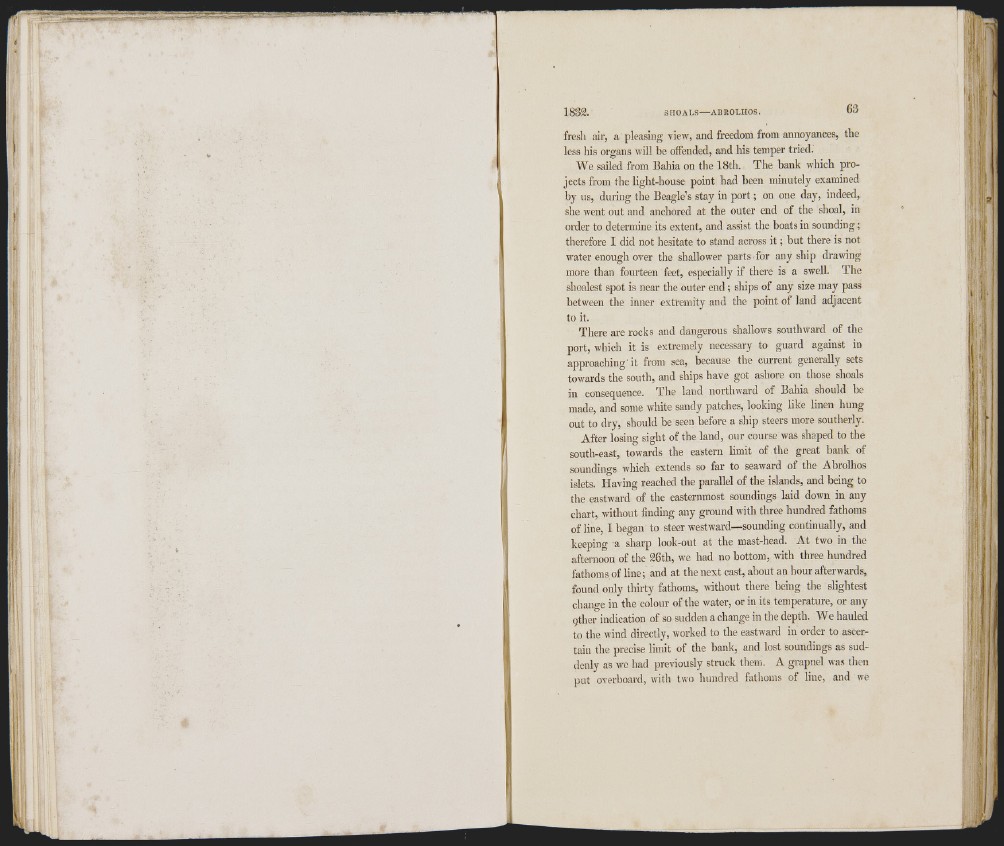
!
ì
ì . f ■ 1
‘}
li:"
li I
; ' . i
18S2. SHOALS ABEOLHOS. 63
fresli air, a pleasing view, and freedom from annoyances, the
less his organs will be offended, and his temper tried.
We sailed from Bahia on the 18th. The bank which projects
from the light-house point had been minutely examined
by ns, during the Beagle’s stay in port ; on one day, indeed,
she went out and anchored at the outer end of the shoal, in
order to determine its extent, and assist the boats in sounding ;
therefore I did not hesitate to stand across it ; but there is not
water enough over the shallower parts for any ship drawing
more than fourteen feet, especially if there is a swell. The
shoalest spot is near the outer end ; ships of any size may pass
between the inner extremity and the point of land adjacent
to it.
There are rocks and dangerous shallows southward of the
port, which it is extremely necessary to guard against in
approaching'it from sea, because the current generally sets
towards the south, and ships have got ashore on those shoals
in consequence. The land northward of Bahia should he
made, and some white sandy patches, looking like linen hung
out to dry, should be seen before a ship steers more southerly.
After losing sight of the land, onr course was shaped to the
south-east, towai-ds the eastern limit of the great hank of
soundings which extends so far to seaward of the Abrolhos
islets. Having reached the parallel of the islands, and being to
the eastward of the easternmost soundings laid down in any
chart, without finding any ground with three hundred fathoms
of line, I began to steer westward—sounding continually, and
keeping a sharp look-out at the mast-head. At two in the
afternoon of the 26th, we had no bottom, with three hundred
fathoms of line; and at the next cast, about an hour afterwards,
found only thirty fathoms, without there being the slightest
change in the colour of the water, or in its temperature, or any
qther indication of so sudden a change in the depth. We hauled
to the wind directly, worked to the eastward in order to ascertain
the precise limit of the hank, and lost soundings as suddenly
as we had previously struck them. A grapnel was then
put overboard, with two hundred fathoms of line, and we
i
i l